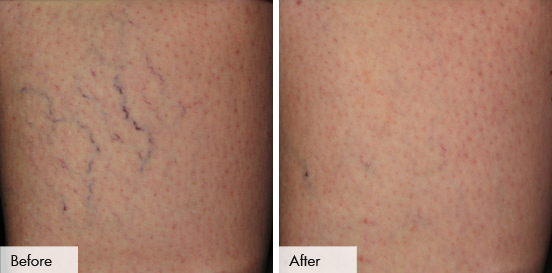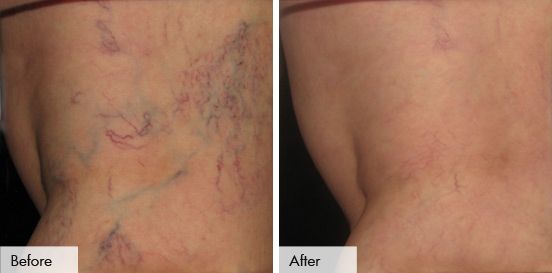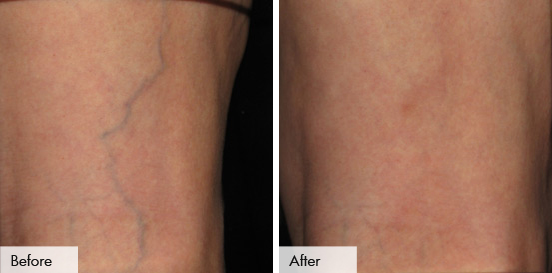Sclerotherapy – Treatment of Leg Veins with Asclera™
Expert Asclera and Sclerotherapy leg vein treatment New York Physician
Asclera® (polidocanol) Injection is a prescription medicine that is used in a procedure called sclerotherapy and is administered Dr. Halem, an expert injector, located in New York City, Manhattan to treat two types of veins:
- Uncomplicated spider veins (very small varicose veins ≤ 1 mm in diameter)
- Uncomplicated small varicose veins (1 to 3 mm in diameter) known as reticular veins

How Does Asclera® Work?
Asclera® is a sclerosing agent that is injected into the vein. It works by damaging the endothelium, the cells lining the inside of blood vessels. This causes blood platelets and cellular debris to attach to the lining of the vessels; eventually, cellular debris and platelets cause the blood vessel to clot. Over time, the clotted vein will be replaced with tissue.
How long is each Asclera® session?
A typical sclerotherapy session lasts 15 to 45 minutes. One injection is usually administered per inch with multiple injections per session. Following treatment compression stockings or support hose should be worn continuously for 2-3 days and for 2-3 weeks during the day time. Repeat sessions may be necessary. If additional treatment sessions are required they are usually reparated by 1-2 weeks.

What should I expect after being treated with Asclera®?
Maintain graduated compression
- 2-3 days after treatment of spider veins
- 5-7 days after treatment of reticular veins
- For extensive varicosities, longer compression treatment is recommended
- Post-treatment compression is necessary to reduce the risk of deep vein thrombosis.
Encourage walking
- 15-20 minutes immediately after treatment
- Daily for a few days
What should I avoid after receiving an Asclera® Injection?
For two to three days following the treatment, avoid (if you are uncertain, please ask your healthcare provider):
- Heavy exercise
- Sunbathing
- Long plane flights
- Hot bath or sauna

Are there any possible side effects to Asclera® treatments?
Yes, they may include:
- Severe allergic reactions have been reported following polidocanol use, including anaphylactic reactions, some of them fatal. Severe reactions are most frequent with use of larger volumes (> 3 mL). The dose of polidocanol should therefore be minimized. A doctor should be prepared to treat anaphylaxis appropriately.
- In rare cases, formation of small “burns” or ulcers form, usually due to leakage of Asclera® into the skin. They heal in time, but may leave a scar.
- Inadvertent perivascular injection of Asclera® can cause pain. If pain is severe, a local anesthetic (without adrenaline) may be injected.
You should tell your doctor about all the medicines you are taking, including:
- Prescription and nonprescription medicines, vitamins and herbal products
You should not be treated with Asclera® if you:
- Have a known allergy to polidocanol
- Have an acute vein or blood clotting (thromboembolic) disease
- Are pregnant or nursing













